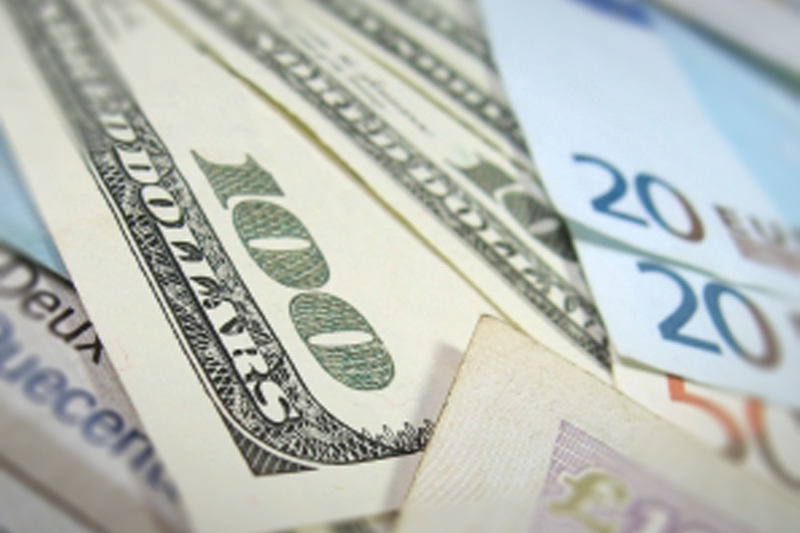Investing.com -- The U.S. dollar remained relatively unchanged against the euro following Janet Yellen's speech at the Federal Reserve Bank of San Francisco Conference on Friday afternoon, minutes before the close of U.S. markets.
EUR/USD fell slightly to 1.089 at the end of U.S. trading slightly below its level of 1.0904 minutes before the start of Yellen's lecture. For the session, the pair inched up 0.0006 or 0.05%.
EUR/USD likely received support at 1.05 its low from Mar. 11 and resistance at 1.14 its high from mid-February.
Yellen, the chair of the Federal Reserve, reiterated on Friday that an interest rate hike "may be warranted later this year," if the Fed is reasonably confident that there is continued improvement in the economy. Still, Yellen said she does not need to see an increase in core inflation before the Fed decides to raise rates. The Fed, she added, could begin to raise rates before inflation reaches its target goal of 2%.
At the same time, Yellen emphasized that the Fed will proceed cautiously to avoid tightening too quickly. She cited the deleterious effects of premature rate hikes in Sweden and Japan as factors for why the Fed should raise rates "gradually."
Earlier on Friday, the dollar pared modest gains in morning trading after the release of disappointing economic data. The U.S. Commerce Department said in a report that GDP for the fourth quarter expanded at a seasonally-adjusted rate of 2.2%. Economists had forecasted an upward revision of 2.4%. On a year-over-year basis, economic output for the fourth quarter increased by 2.4% from the same period a year earlier. By comparison, U.S. GDP grew by 2.7% for the third quarter versus the same quarter during the prior year.
During a question and answer session in San Francisco, Yellen remarked that U.S. net exports are expected to lower GDP growth due in large part to a stronger dollar. If the Fed decides to tighten monetary policy this year, it will come in the face of widespread quantitative easing measures throughout the world.
"We have to take into account the global economic environment and the effect it has on our outlook. We've had weakness in a number of countries including the euro area and Japan," Yellen said. "We've had expansionary monetary policy in those economies that have pushed down rates considerably, inducing capital inflows that have pushed up the value of the dollar."
In Europe, meanwhile, Greek leaders said on Friday that they submitted a list of reform measures to its euro zone creditors that were required for the nation to receive a much-needed lifeline, as it attempts to stave off bankruptcy. The European leaders reportedly began to review the proposals on Friday.
Yields on U.S. 10-Year Treasuries fell 0.049 to 1.96 on Friday, while yields on German 10-Year bunds dropped 0.01 to 0.21.
